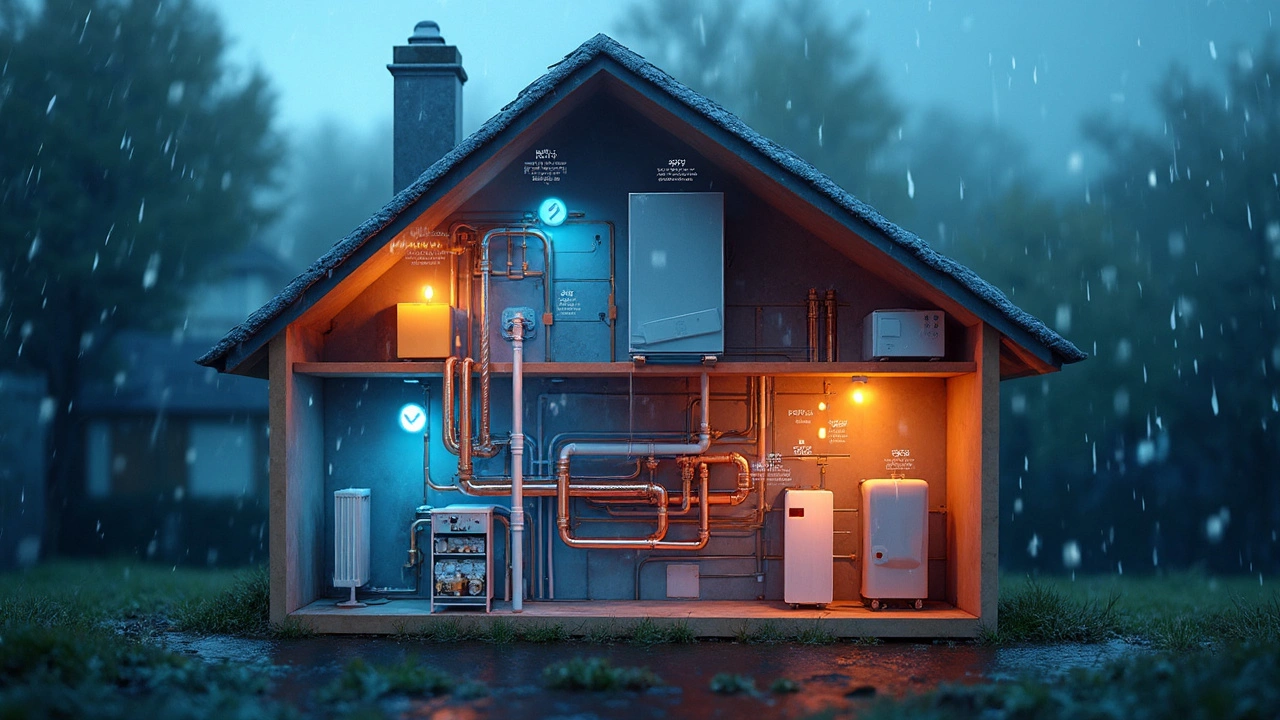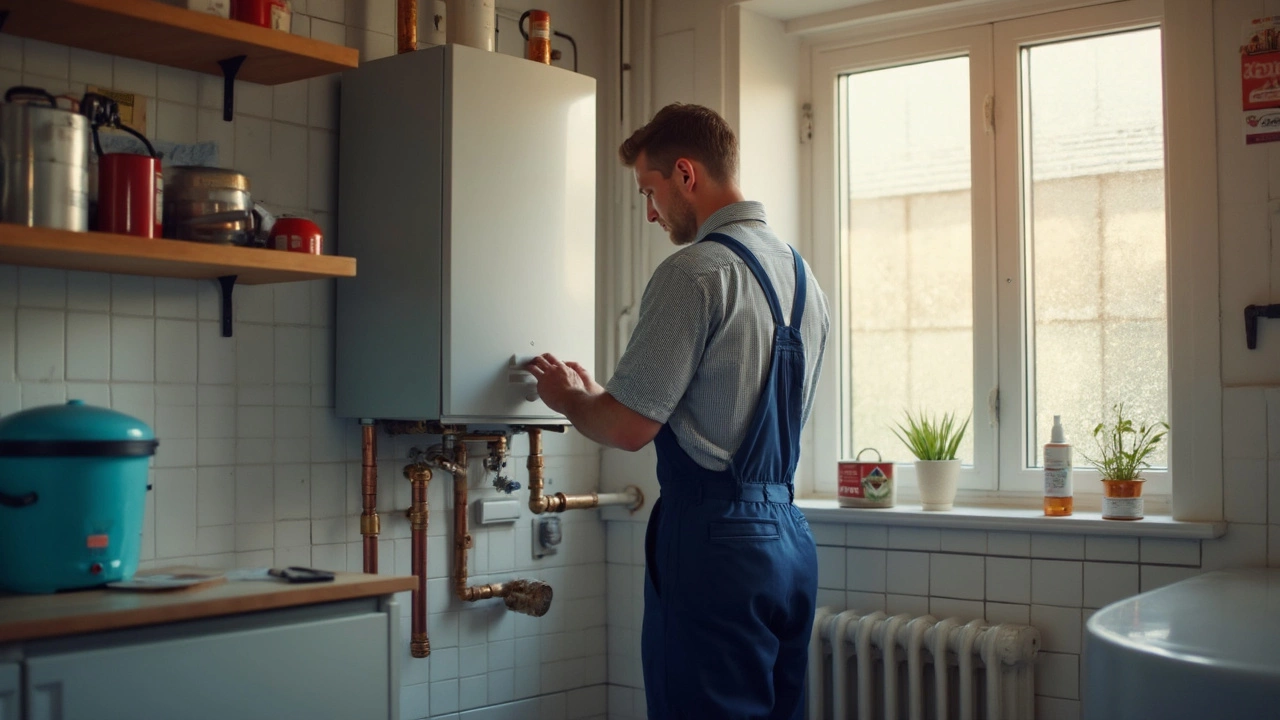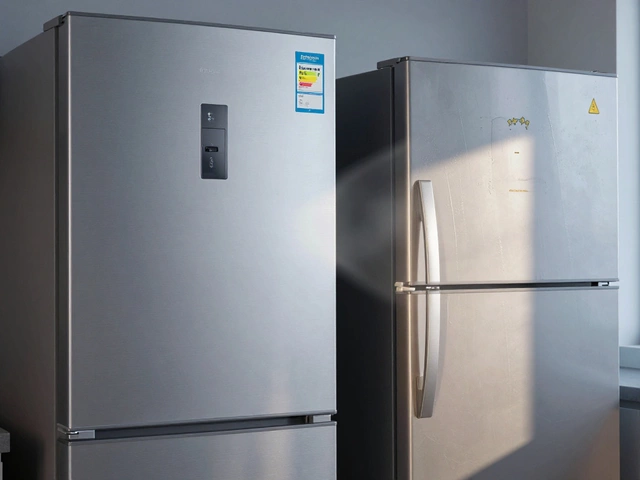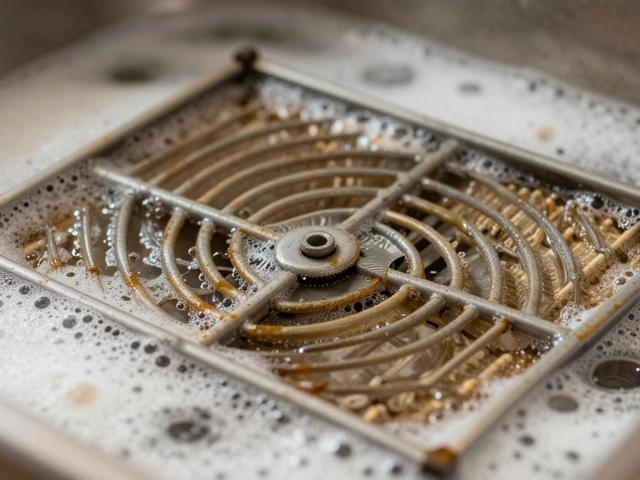Ever heard of someone skipping their car's oil change, only for the engine to die at the worst possible moment? Boilers are no different—neglect them and you might find yourself frantically shivering on a frosty January morning, staring at a cold, dead radiator. Here's the annoying truth: boilers don't just quietly heat your space forever. They're picky, stubborn, and demand attention to stay reliable. Consider this your guide to caring for your boiler so you never get an unexpected (and expensive) cold shower wakeup call.
Why Boiler Maintenance Matters—Beyond the Obvious
A lot of folks think of a boiler as that mysterious box humming away, only remembered when it stops working. But boilers aren't just another appliance—they're the heart of your home's warmth. Since new models can cost several thousand dollars, and a breakdown can mess up your day—or even threaten your safety—it's worth understanding why regular care isn’t optional. For one, annual maintenance boosts safety. Faulty boilers have been linked to carbon monoxide leaks, a deadly hazard that sends roughly 4,000 people in the UK to the hospital each year, according to the NHS. Even if you dodge that, skipping upkeep means rising energy bills, dropping efficiency, and cutting years off your unit's life.
Manufacturers, like Worcester Bosch and Vaillant, even require proof of annual servicing for warranties to stay valid. Miss that, and you’re on your own if something major fails. Routine checks help you spot leaks, corrosion, and blocked parts early—catching a dodgy expansion vessel or gunky heat exchanger before it becomes a money pit. It's a classic case of pay a little now, or a lot later. Plus, a well-maintained system spreads heat evenly, meaning no more cold bedrooms or grumbling housemates.
"A neglected boiler is not just inefficient, it’s a potential danger. Scheduled checks keep you safer and save you money." — Gas Safe Register, UK
Even the most energy-efficient models lose their edge without cleaning and adjustment. Think of it as tuning a guitar. Small tweaks make a big difference in performance and harmony across your home.
Daily, Monthly, and Yearly Boiler Checks That Actually Matter
Feel like boiler maintenance is way too technical? You’re not alone. But the good news: you don’t need to be a professional engineer to keep your system healthy. Major repairs are best left to qualified technicians, but there’s plenty you can check yourself to spot early warning signs.
- Daily glance: Just peek at the pressure gauge. Boilers typically run best between 1.0 and 2.0 bar. If it’s dropping low or shooting high, that’s your cue to dig deeper or call for help. Strange noises, like banging or whistling, also mean trouble.
- Monthly tasks: Check around the unit for signs of leaks. Even a small drip can mean something’s broken inside. Dust off the outside of your boiler and make sure vents, airways, and flues are clear. Clear dust and debris to reduce the risk of overheating or blockages.
- Yearly (or professional) work: Every 12 months, bring in a Gas Safe registered engineer or certified professional. Their checklist covers internal cleaning, gas pressure, combustion tests, flue analysis, and safety checks. Don't try to take things apart yourself—gas appliances are not DIY territory.
A smart tip: schedule professional maintenance ahead of winter. Most breakdowns happen during the first cold snap, when everyone’s boiler is suddenly working overtime. Set yourself a reminder for late summer or early fall and beat the rush.

The Technician’s Checklist—What Actually Gets Done?
So, what goes on during a boiler service anyway? More than meets the eye. A qualified engineer spends about 60 to 90 minutes on a standard domestic unit. Here’s the type of work you’re paying for:
- Visual inspection: Looking for leaks, corrosion, worn seals, odd noises, and blockages in the flue or airways.
- Component cleaning: Removing dust and soot from burners, heat exchangers, and pilot lights. Even a thin layer of grime can knock efficiency by 10%.
- Gas pressure and flow checks: Making sure your system isn’t burning too hot or too cold.
- Combustion analysis: Modern boilers get a digital readout to check flue gases and oxygen mix, confirming safe, efficient operation.
- Electronics and controls: Testing thermostats, timers, and safety cut-offs. Electrical faults are a sneaky cause of intermittent problems.
- Expansion vessel pressure: The vessel absorbs pressure changes when hot water expands—if it’s faulty, you’ll get wild pressure swings, leaks, or complete shutdown. Engineers use a special pump and gauge for accurate testing.
- Condensate trap and drainage: Clearing any blockages that could back up toxic exhaust gases.
Plainly put: a solid boiler service isn’t about ticking boxes. It’s about spotting tiny issues before they wreck your wallet or peace of mind. For instance, a cracked heat exchanger is a rare but serious danger—only a thorough check will catch it before it leaks carbon monoxide.
Here’s a sample checklist table summarizing core annual tasks:
| Task | Frequency | Who Should Do It? |
|---|---|---|
| Check boiler pressure | Daily/Weekly | User |
| Look for leaks | Monthly | User |
| Clear vents/flues | Monthly | User |
| Professional service | Annually | Certified Technician |
| Test carbon monoxide alarm | Biannually | User |
Simple Tricks to Boost Efficiency and Slash Your Bills
If you’re tired of nasty surprises when the energy bill lands, it’s time to rethink how you use and maintain your heating. Here’s what really moves the needle:
- Keep your radiator system balanced. After flushing the system or new installation, have a pro check the temperature of each radiator. Bleed radiators every autumn—air bubbles block hot water and make heating uneven.
- Install thermostatic radiator valves (TRVs). They let you set room-by-room temperatures, so you only heat what you need.
- Add smart controls. Modern smart thermostats let you schedule heating on your phone, learn your patterns, and avoid wasting heat. Did you know using a smart thermostat can chop up to 10% off your gas bill?
- If your house still uses old single-glazed windows or poor insulation, even the fanciest boiler will underperform. Pair maintenance with home upgrades for the best payoff.
- Don’t ignore slow changes. If your boiler starts using more fuel for the same job, or takes ages to heat up, get it checked early. Lagging performance is usually the first clue something’s clogging up or breaking down inside.
One surprising stat: the Energy Saving Trust estimates that a well-maintained, A-rated boiler maintenance system can save an average UK household £300 a year compared to the clunky, unloved units from a decade ago. That’s money you’d probably rather spend on things you actually enjoy.

Hard Truths: Mistakes That Ruin Boilers and Risk Your Health
Ever thought you could save money by skipping your annual boiler service? It’s one of the most expensive shortcuts you can take. It’s not some industry myth—boiler makers often void warranties if your service record isn’t up to date. If you rent, your landlord is legally responsible for this check (at least in the UK), but always double-check they’re keeping records. In the US, local building codes can vary, so check your city’s rules.
People also get creative with risky DIY repairs. Messing with gas pipes or pressure vessels when you don’t know what you’re doing is flat-out dangerous. There are horror stories of explosions, fires, and CO leaks from home fixes gone wrong. Stick to basic checks—leave the tricky stuff to someone who’s trained and accredited.
Then there’s the classic mistake: blocking boiler vents because you ‘don’t want a draft.’ Boilers need good airflow to burn fuel cleanly. Clogging vents or covering pipes just makes things less efficient—and could increase CO risk.
Small problems also get overlooked. A dripping pipe or an error code flashing on your boiler display? Don’t wait for a breakdown to deal with it. Most faults start small and grow nasty with time.
So, treat your boiler like the investment it is. Keep an eye on the basics, act fast if anything changes, and book that professional service like clockwork every year. Heating disasters might make for good stories, but trust me, staying cozy and safe through winter feels way better.





